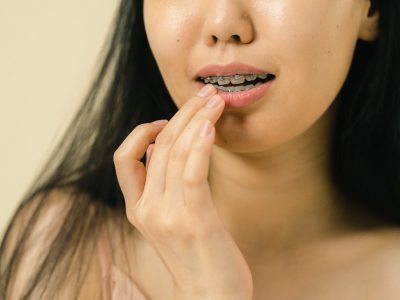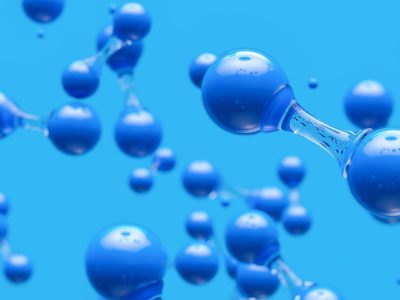Urinary incontinence refers to a usual and a bit embarrassing condition that affects millions of people worldwide. It refers to involuntary urine loss, and its impact on one’s quality of life can be significant.
While there are various treatments and strategies, such as briefs for incontinence, adult diapers, etc., to take care of urinary incontinence, the role of diet is often underappreciated. Diet can play a pivotal role in both the prevention and management of this condition.
What we eat and drink can influence bladder health, urinary function, and the severity of incontinence symptoms. In this article, we will dive into the fascinating and practical realm of the role of diet in managing urinary incontinence.
Let’s explore the beverages and foods that can exacerbate or alleviate symptoms, dietary habits that support bladder health, and the ways in which individuals can take control of their nutrition to enhance their overall well-being in the face of this common condition.
Understanding Urinary Incontinence
Urinary incontinence, a condition characterized by the unintentional loss of urine, is more common than many people realize. The most common types include stress incontinence, urge incontinence, and mixed incontinence.
- Stress incontinence occurs when physical activities or pressure on the bladder causes leakage, such as during sneezing or lifting heavy objects.
- Urge incontinence is characterized by a sudden and overwhelming need to urinate, often leading to leakage before reaching the restroom.
- Mixed incontinence combines elements of both urge incontinence and stress.
The causes of urinary incontinence can be diverse and include factors such as age, pregnancy and childbirth, obesity, hormonal changes, neurological conditions, and dietary choices.
Dietary Factors And Urinary Incontinence
Dietary factors play a crucial role in the development and management of urinary incontinence. Certain food items can significantly impact bladder function and the severity of incontinence symptoms. Understanding how some foods and beverages affect the bladder is essential for those dealing with this condition. Here are some dietary factors to consider:
- Caffeine: Caffeine, found in coffee, tea, soft drinks, and chocolate, is a known diuretic that can increase urinary frequency and urgency. Reducing or eliminating caffeine intake may help reduce bladder irritation.
- Alcohol: Alcohol can inflate the bladder and increase urine production. Limiting alcohol consumption, especially in the evening, may help reduce nighttime incontinence episodes.
- Carbonated Beverages: Carbonated drinks, such as soda, can contribute to bladder irritation due to their carbonation and acidity. Opt for non-carbonated alternatives.
- Spicy Foods: Fast foods that are mostly spicy, like hot peppers and certain spices, can make the bladder irritated and exacerbate urgency and frequency. Reducing the consumption of spicy foods may be beneficial.
- Artificial Sweeteners: Some artificial sweeteners, such as saccharin and aspartame, have been linked to increased urinary urgency and frequency. Consider natural sweeteners like honey or stevia instead.
- Juices and Citrus Fruits: Citrus fruits, along with their juices, including oranges, grapefruits, and lemons, are acidic and can inflate and irritate the bladder. Reducing citrus consumption may help alleviate symptoms.
Dietary Strategies For Managing Urinary Incontinence
Managing urinary incontinence effectively often involves a multifaceted approach, and diet plays a vital role in this strategy. By adopting specific dietary strategies, individuals can help alleviate symptoms, reduce the frequency of incontinence episodes, and improve overall bladder health. Here are some dietary approaches to consider when managing urinary incontinence:
Hydration Balance
Striking the right balance when it comes to hydration is crucial. While it might appear a bit counterintuitive, remaining adequately hydrated is essential for overall bladder well-being.
Dehydration might result in concentrated urine, which eventually irritates the bladder lining and exacerbates incontinence symptoms. On the other hand, excessive fluid intake, especially before bedtime, can increase nighttime urination.
It’s advisable to aim for consistent, moderate hydration all through the day and reduce fluid intake in the evening to reduce nighttime awakenings.
Avoid Irritants
Certain foods, as well as beverages, are known to irritate the bladder and can worsen incontinence symptoms. By being mindful of these bladder irritants and making informed dietary choices, individuals can take proactive measures to reduce the potential for bladder irritation and, in turn, improve their management of urinary incontinence.
While dietary modifications can be effective, it’s essential to talk to a healthcare professional or registered dietitian for personalized guidance and to rule out other underlying medical causes of incontinence. Combining dietary strategies with other treatment options can lead to a more successful and comfortable approach to living with urinary incontinence.
Fiber-Rich Diet
Constipation can worsen urinary incontinence by putting pressure on the bladder. When the bowels become backed up due to constipation, they can push against the bladder, causing physical pressure.
This added pressure can lead to increased urinary urgency and leakage in individuals with urinary incontinence. It can also strain the pelvic floor muscles, which are essential for bladder control.
Consuming a diet rich in fiber from fruits, vegetables, and whole grains can help regulate bowel movements and alleviate this pressure. Adequate fiber intake promotes regular and comfortable elimination, reducing the risk of incontinence exacerbation.
Incorporating fiber-rich foods into one’s daily diet is not only a practical strategy for managing constipation but also an essential component of holistic urinary incontinence management. It supports both bowel regularity and bladder health, ultimately improving an individual’s quality of life.
Healthy Weight Management
Maintaining a healthy weight is crucial in managing urinary incontinence, as excess weight can put additional pressure on the bladder and pelvic floor muscles.
A balanced diet and regular physical activity can aid in weight management, potentially reducing the severity of symptoms.
Bladder-Friendly Foods
Some healthy snacks are known to promote bladder health and can be included in your diet to support incontinence management:
- Cranberries: While not a cure, cranberries may help prevent urinary tract infections (UTIs), which can worsen incontinence symptoms. Incorporating cranberry products or supplements into your diet may be beneficial.
- Yogurt: Yogurt contains probiotics that can support overall urinary as well gut health. Including yogurt with active cultures in your diet may help maintain a healthy urinary tract.
Moderation And Balance
Moderation and balance are key principles when it comes to managing dietary factors related to urinary incontinence. Avoiding excessive consumption of any specific food or beverage and focusing on a well-rounded, nutritious diet can positively impact bladder function.
By incorporating these dietary strategies into your daily routine, you can take proactive steps to manage urinary incontinence effectively.
It’s important to remember that individual responses to specific foods and beverages may vary, so keeping a bladder diary to track symptom triggers and consulting with a healthcare professional or registered dietitian can provide valuable guidance for personalized dietary management.
Consulting A Healthcare Professional
While dietary changes can play a significant role in managing urinary incontinence, it’s essential to consult a healthcare professional for a comprehensive evaluation and personalized guidance. In some cases, underlying medical conditions may require specific treatments or therapies.
In conclusion, diet should not be underestimated in the management of urinary incontinence. By making informed dietary choices, avoiding irritants, and embracing a bladder-friendly diet, individuals can take proactive steps to alleviate symptoms, improve bladder health, and enhance their overall quality of life.
A holistic approach that combines diet, lifestyle modifications, and medical interventions when necessary can be a powerful strategy for managing this common condition.
Read Also:

















